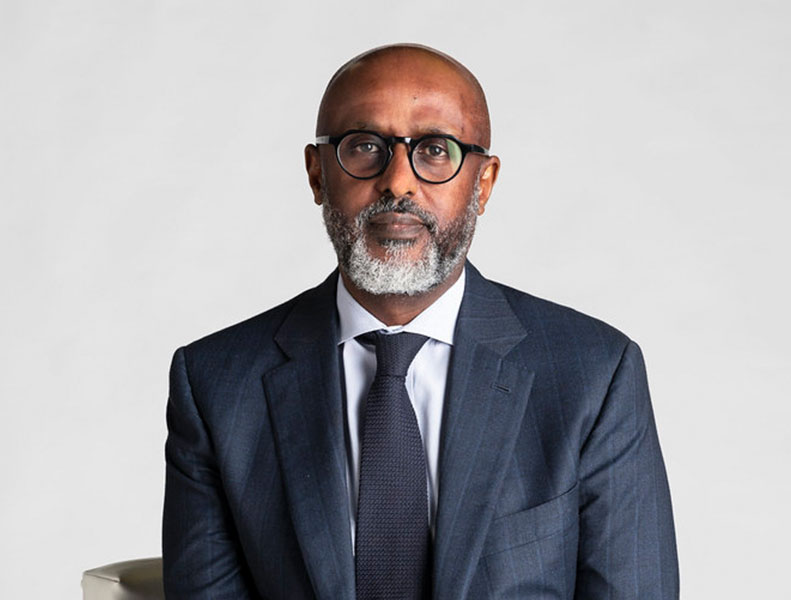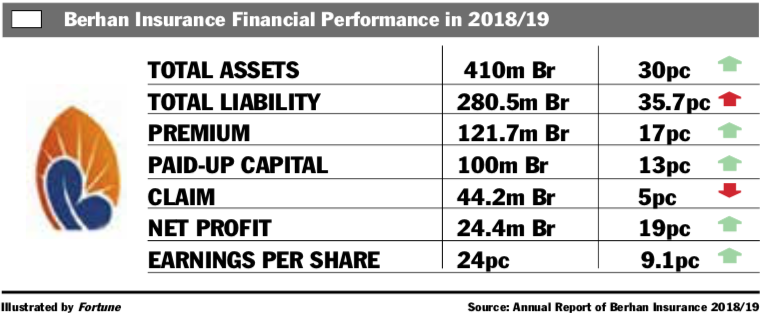
Oct 23 , 2021
By TAMRAT G. GIORGIS ( FORTUNE STAFF WRITER )

The International Monetary Fund (IMF) left Ethiopia out of its economic growth projections for next year due to political volatility and pending negotiations over external debt restructuring.
Since November last year, Ethiopia has been mired in a civil war, causing massive death, displacements, and hunger, while the economy is in distress. Affected by the COVID-19 impact, it is one of the three African countries (alongside Zambia and Chad) eligible for debt reprofiling from its creditors. Ethiopia's external debt exposure reached 30 billion dollars, with China taking almost half of the share. China co-chairs with France, a financial committee of Ethiopia's creditors, to negotiate whether to cancel some of its debt and provide new loans.
However, the extremely high degree of uncertainty and Ethiopian authorities' request for a new programme with the IMF yet to be discussed have prompted the latter to omit projection for economic growth for the year 2022, according to Abebe Aemroselassie, IMF's Africa director.
The IMF has made its projections for the 45 sub-Saharan countries, but Ethiopia, in its regional economic outlook released last week. It projected Ethiopia's GDP would grow by two percent for the current year, down from six percent last year and 1.7 percentage points lower than the sub-Saharan average. Economies of countries in Africa have shown recovery in 2021 from contraction a year before, a development Abebe welcomed, although the slowest growth seen in the world. He described the trend as a "relatively modest recovery" where policymakers in Africa are under a difficult policy environment with "rising needs, limited resources, and difficult tradeoffs."
He warned that governments in Africa would be forced to spend more to protect their citizens from falling into the poverty trap while watching over the mounting public debt. They will have to push for a significant increase in domestic tax mobilisation to pay for development needs when global support has declined. Africa needs 425 billion dollars in external aid; Abebe disclosed what has been available is "insufficient."
The IMF has furnished 53 billion dollars in special drawing rights (SDR) to help countries boost their foreign currency reserves. Ethiopia is one of the countries that have received an allocation of over 400 million dollars. However, its officials have yet to close a deal with Ethiopia's public and private creditors for debt restructuring before entering into a new program with the IMF.
The IMF board approved two programmes for Ethiopia two years ago with interest-free loans of 2.9 billion dollars. One of these programs, the 1.5 billion dollars extended credit facility, expired in September this year, which led Ethiopian authorities to apply for support under the poverty reduction and growth trust (PRGT).
"We haven't gone through the discussion yet," said Abebe during a briefing to the media held last week after the release of the annual economic outlook.
Neither have Ethiopia's efforts to start negotiations with its creditors advanced as much as Zambia's. Its public and private creditors have not submitted their commitment and guarantee, a prerequisite to moving forward in the external debt reprofiling process. The ongoing war has not helped in shoring up confidence by creditors while rating agencies keep downgrading Ethiopia's status.
The latest was Moody's Investors Service, a credit rating agency, which has put down Ethiopia's rating to Caa2 from Caa1. It is the second time the agency has downgraded its rating this year, a negative outlook with a higher risk of default.
"External liquidity risks have increased significantly," says a statement Moody issued on October 20. "Continued heightened social tension and conflict have weakened the quality of the country's institutions and governance, further impairing the sovereign's ability to secure external funding."
This can be reversed if Ethiopia's request for debt treatment from the G20 paves the way for additional official and market-based loans.
In addition to pandemic-induced impacts, increased insecurity in the Sahel, Congo, and the Horn of Africa alarms IMF officials.
"We're watching the uptick in violence," said Abebe, who declined to comment on what is unfolding in Ethiopia.
Ethiopian authorities are not pleased with the IMF decision to skip its projections, unprecedented for Ethiopia since the mid-1990s. They believe it is politically motivated, for the IMF staff has full access to data from Ethiopia.
Nemera Gebeyehu (PhD), state minister for Planning, admits the move by the IMF is not seen as positive symbolically but dismisses its impact on Ethiopia.
PUBLISHED ON
Oct 23,2021 [ VOL
22 , NO
1121]

Fortune News | Feb 08,2020

Radar | May 04,2024

Radar | Dec 19,2021

Radar | Feb 16,2019

Fortune News | Dec 11,2021

Dec 22 , 2024 . By TIZITA SHEWAFERAW
Charged with transforming colossal state-owned enterprises into modern and competitiv...

Aug 18 , 2024 . By AKSAH ITALO
Although predictable Yonas Zerihun's job in the ride-hailing service is not immune to...

Jul 28 , 2024 . By TIZITA SHEWAFERAW
Unhabitual, perhaps too many, Samuel Gebreyohannes, 38, used to occasionally enjoy a couple of beers at breakfast. However, he recently swit...

Jul 13 , 2024 . By AKSAH ITALO
Investors who rely on tractors, trucks, and field vehicles for commuting, transporting commodities, and f...

Oct 25 , 2025
The regulatory machinery is on overdrive. In only two years, no fewer than 35 new pro...

Oct 18 , 2025
The political establishment, notably the ruling party and its top brass, has become p...

Oct 11 , 2025
Ladislas Farago, a roving Associated Press (AP) correspondent, arrived in Ethiopia in...

Oct 4 , 2025
Eyob Tekalegn (PhD) had been in the Governor's chair for only weeks when, on Septembe...